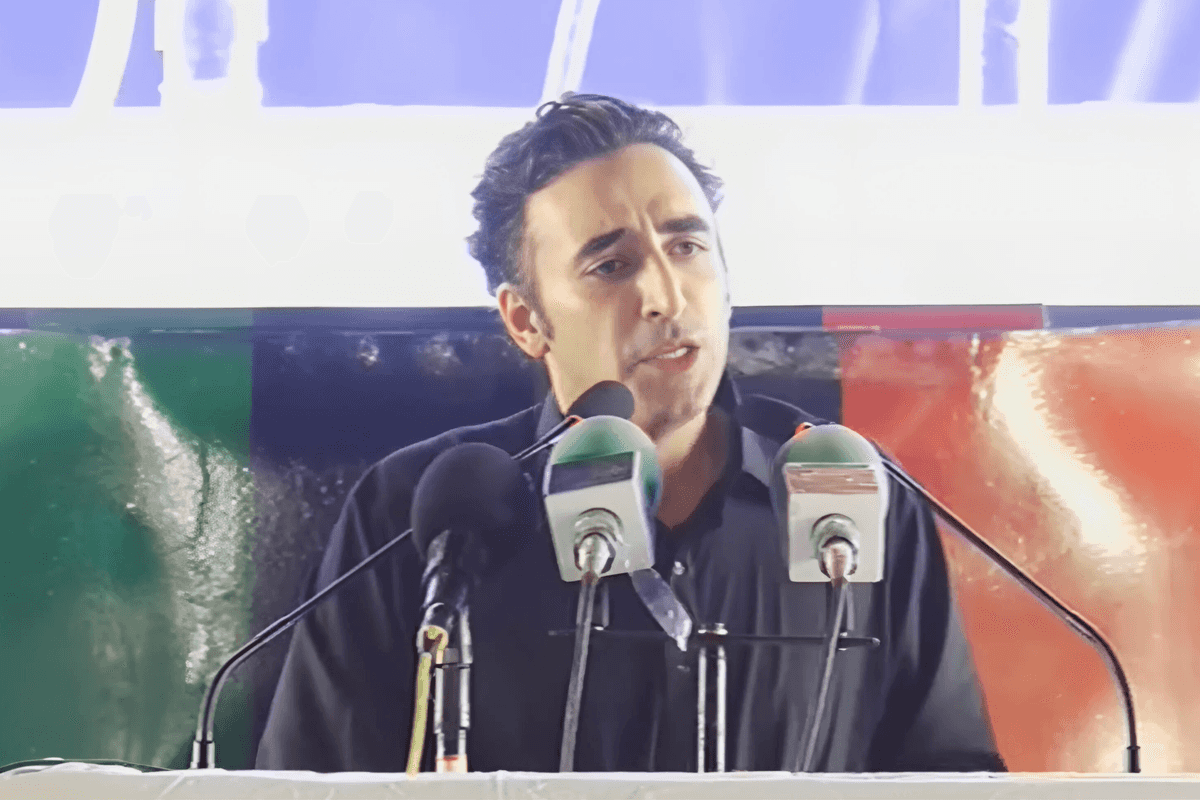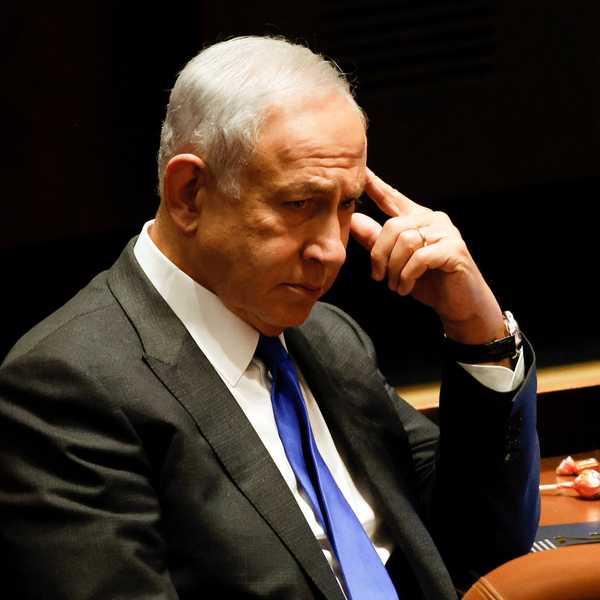Key coalition partner rejects Pakistan's controversial Indus River canal project
PPP chairman Bilawal Bhutto-Zardari issues 'ultimatum' to Prime Minister Shehbaz Sharif's government
News Desk
The News Desk provides timely and factual coverage of national and international events, with an emphasis on accuracy and clarity.

Bilawal Bhutto-Zardari speaks at a rally in Garhi Khuda Bakhsh, Larkana, Pakistan on April 4, 2025, rejecting government plans for controversial Indus River canals.
Courtesy: PPP / Facebook
Bilawal warns party will block 'conspiracy' against Pakistan's federal structure
PPP remains in coalition despite declining ministerial positions in protest
Nationwide rallies planned starting April 18 for fair water distribution
Bilawal Bhutto-Zardari, chairman of a major ruling coalition party, declared on Friday that his party will oppose the government's "unilateral decision" to build controversial canals on the Indus River, calling the project a "conspiracy" that his party will prevent from succeeding.
Speaking at a rally in Larkana marking the death anniversary of Pakistan Peoples Party (PPP) founder Zulfikar Ali Bhutto, the 36-year-old political scion finally clarified his party's position on the water dispute that has strained its coalition with the Pakistan Muslim League-Nawaz (PML-N) government.
"The government's decision to build canals is unilateral, and the PPP does not support it," Bilawal said. "We will not let this conspiracy succeed."
Bhutto issued what appeared to be an ultimatum to Prime Minister Shehbaz Sharif's government, saying the PPP would stand with the people, not with the government, if the public rejects the new canals.
While acknowledging the government hasn't yet approved the project due to PPP's objections, he warned against "irresponsible decisions" that could harm Pakistan's federal structure.
The PPP chairman announced plans for rallies beginning in Hyderabad on April 18, calling on supporters to join him in the struggle for fair water distribution. He promised to visit every division with the slogan "Pakistan khappay" (long live Pakistan) to "save the federation and defeat every conspiracy."
Addressing criticisms about the PPP's alleged dual position of opposing the project while remaining in the coalition government, Bilawal insisted his party was the first to raise objections through press conferences and protests. He mentioned that PPP had already shown its displeasure by declining ministerial positions in the coalition government.
"On December 27 [last year], didn't PPP workers reject this unilateral decision?" Bhutto asked, referring to party's previous demonstrations. He also cited a Council of Common Interests (CCI) meeting in January where the PPP formally opposed the canal project.
'Zardari phobia'
Defending his father, President Asif Ali Zardari—accused of approving the canal project during a July 2024 meeting—Bilawal said the president had publicly condemned the government's unilateral decisions to extract new canals from the Indus River without the provinces' consent.
He dismissed critics as suffering from "Zardari phobia," claiming they see his father "behind everything" and "even in their dreams."
The controversy centers on the federal government's plans to construct six new canals across different provinces. The Cholistan Canal, which would be 176 kilometers long, would draw water from the Sulemanki Barrage on the Sutlej River and is part of the Green Pakistan Initiative.
Bhutto emphasized that the PPP's opposition to such a project has historical precedent, noting that party workers have long fought against controversial canal decisions dating back to the former president General (retd) Pervez Musharraf and PTI chairman Imran Khan eras.
He invoked his mother's legacy, stating that Benazir Bhutto had successfully opposed a controversial dam project even when not in power.
He challenged critics to consult the Indus River System Authority's (IRSA) reports on water scarcity, pointing out that farmers in Punjab also face water shortages and would be harmed by new diversions.
"I have fought and will continue to fight against India's water theft," Bilawal added, comparing the current struggle to his diplomatic efforts on transboundary water issues.
Fears of drought
Sindh province, PPP's political stronghold, fears the project will divert water away from their region, potentially turning fertile land into desert and causing environmental damage to the Indus Delta through seawater intrusion.
Punjab province claims the canal will only use water from its allocated share under existing agreements, but Sindh disputes these calculations, arguing that water flow to the sea has dramatically decreased in recent decades.
Sindh Irrigation Minister Jam Khan Shoro earlier told Nukta that the Cholistan Canal remains the most controversial project yet to be approved by the Executive Committee of the National Economic Council (ECNEC), primarily due to Sindh’s opposition.
Earlier, the Sindh Assembly also passed a unanimous resolution demanding the federal government halt the project, putting additional pressure on PPP to either force cancellation of the project or exit the coalition government.







Comments
See what people are discussing